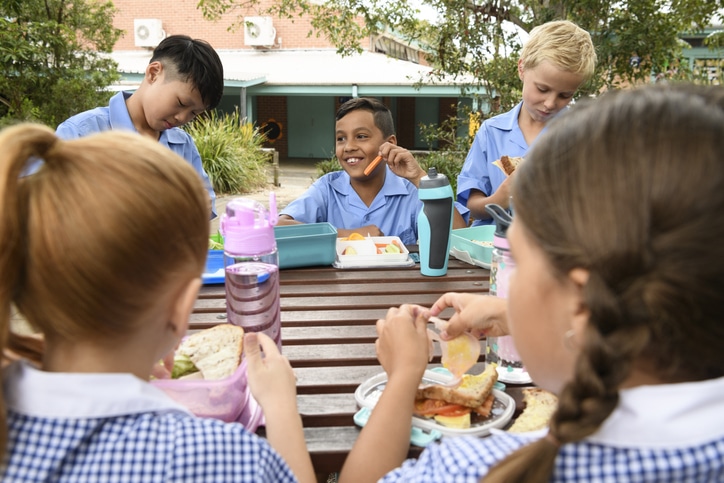Today, four in five primary students will return to school with a packed lunch, which equates to thousands of school lunches across the ACT today alone.
What kids eat while they are at school effects their behaviour in the classroom, their learning and, ultimately, their academic achievement.
But, 88% of lunchboxes have “room for improvement”.
More than one third of their energy is from “discretionary” foods such as cake, muesli bars, chips and sugary drinks.
Newly-published research, coordinated by the University of Newcastle (UoN), shows that parents can be supported to make simple “swaps” to what they pack in lunchboxes – to make them healthier.
What’s more, the data found these healthy switches didn’t need to cost any more or take any extra time to prepare.
“Healthy swaps include things like swapping chips for popcorn, cakes for pikelets, or fruit strings for fresh fruit or veg,” said Alison Brown, a PhD candidate in the School of Medicine and Public Health at UoN.
“These swaps don’t have to burden time-poor parents.
“A typical lunchbox costs about $4 to pack.
“We’ve designed a program called SWAP IT that supports parents to make simple, tasty and healthy swaps, without costing them an extra cent.”
Dr Jannah Jones, a Postdoctoral Researcher at the School of Medicine and Public Health at UoN, said “parents often get blamed for packing unhealthy lunchboxes”.
“However, we listened to them and heard about their challenges, they told us they needed swaps that were quick, easy and food-safe.
“So, we didn’t start asking parents to cook Michelin star meals in the SWAP IT program.
“Instead, we gave them simple and frugal swap ideas directly to their phones.
“We sent notifications to parents’ phones via their school’s communication app.
“Two-thirds of schools use such apps.
“These notifications provided practical swap ideas directly to parents.
“At least 84% of them liked receiving these swap ideas as notifications,” Dr Jones said.
Public Health PhD candidate at UoN, Matthew “Tepi” Mclaughlin admitted there was very little guidance as to what to pack in school lunchboxes.
“It can be very confusing for parents, especially when we see up to 10 junk food adverts per hour,” he said.
“Ultimately, the SWAP IT program worked to reduce the amount of unhealthy foods being packed each day.
“It didn’t blame parents, instead it supported them.
“We think this was the key to success.”



